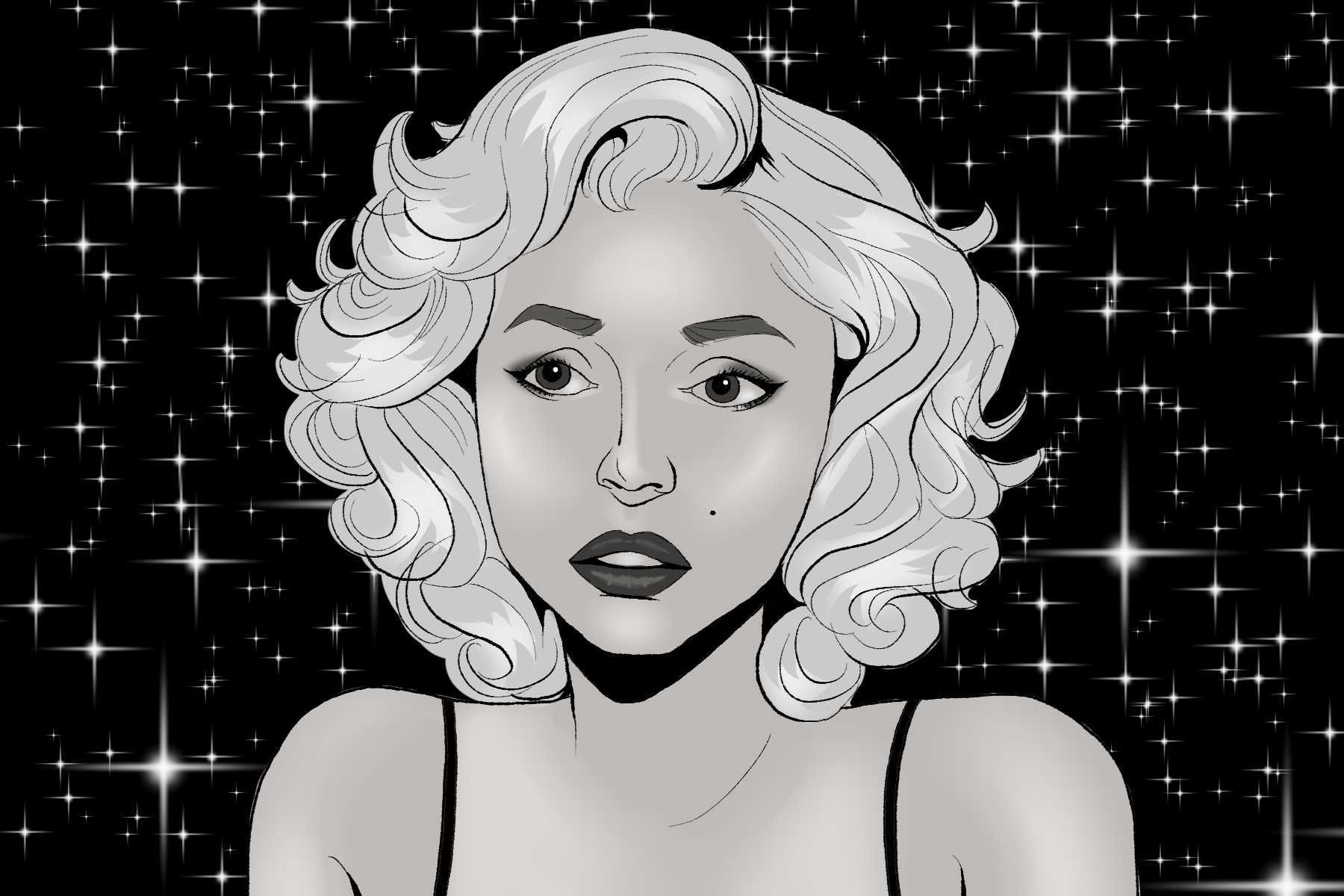Marilyn Monroe is one of the most prominent icons in American culture. She remains a symbol of glamor and the beauty standard she immortalized, and her presence pervades music, art and film. Whether you can name all her roles or not, when someone says “Marilyn Monroe,” familiar images come to mind, particularly that of the 1950s “Blonde Bombshell” in her signature white dress and red lipstick. A biopic on the celebrity titled “Blonde,” directed by Andrew Dominik, is set to release on Netflix this September. Mirroring Monroe’s life, the upcoming film already has its fair share of controversies even before its release. Has the film gone too far with its creative choices, or is it simply giving such a famed star justice?
The term biopic, short for “biographical picture,” is defined as a movie that follows the life story of a real person, whether famous, historical or ordinary. Besides focusing on an actual individual, biopics have very few parameters, meaning the creators can veer in many different stylistic directions. Biopics can portray a specific time within the subject’s life or condense decades of events into a single film. Modern-day biopics typically pay tribute to pop-culture icons or share stories that don’t often see the spotlight. Since it is impossible to capture a person’s entire life in a 90-minute or two-hour movie, every aspect of a biopic is vital in painting a subject’s portrait. The dialogue, cinematography, casting, music and costumes are carefully constructed to match the correct tone. All pieces of a Marilyn Monroe biopic must be exceptional for a film based on such a dynamic and important subject.
Monroe, born Norma Jeane Mortenson, is one of the most recognizable legends from the Golden Age of Hollywood. One of the main controversies that surrounded “Blonde” came with the casting of Cuban-born actress Ana de Armas as Monroe. Commenters felt that Armas didn’t suit the role; rather, they wanted an actress who physically matched the blonde Hollywood starlet better. As a brunette with brown eyes, Armas went through over three hours of makeup and wig placement for filming days to transform herself into the role. While teaser trailers also received some buzz for Armas’ accent, the actress worked with a dialect coach for approximately nine months to nail down Monroe’s breathy, iconic voice.
With released promotional pictures nearly indistinguishable from popularized images of the beloved Monroe, Armas appears to have embraced the role wholeheartedly. Dominik and fellow actors Jamie Lee Curtis and Brad Pitt all shared immense praise for Armas’ acting, describing her portrayal as show-stopping. With over 10 years of preparation and production on “Blonde,” as well as endless searching for their lead, the directorial team felt they chose an actress who could ideally encompass the glamorous yet frequently vulnerable Hollywood star.
Others are less concerned with the casting choices and more upset with the movie’s graphic content that has necessitated an NC-17 rating. The film is the first Netflix-produced movie with the NC-17 rating, the highest and most explicit rating possible. While details about the rating have not been shared, the production team mentioned graphic sexual content and the potential inclusion of sexual assault scenes. Director Dominik told sources that “Blonde” is the kind of movie that would “offend everyone.” While the director initially voiced displeasure with the rating, he eventually expressed he was okay with it since he would “rather go see the NC-17 version of the Marilyn Monroe story.”
Individuals on social media platforms quickly spoke against these darker themes within the film, pointing out that the movie felt more like a “violent fantasy” than a professionally made biopic. In fact, many are stating it should not be considered a biopic since it is more a movie adaptation of the 2000 biographical fiction novel “Blonde” by Joyce Carol Oates. Oates herself has explained that while her novel uses Monroe as its main character and heavily relies on the celebrity’s relationships as the center of the story, it is fictionalized and includes events that did not happen. Oates has commented on the final cut of the movie “Blonde,” calling it a genuinely feminist adaptation that was “brilliant” and “very disturbing.” However, many viewers already feel as though making a movie that presents itself as a biopic and depicts stories that didn’t happen is harmful in nature, especially given the sexual content included.
TikTok creators and movie critics alike scrutinized the film for its exploitativeness, the facts twisted to suit the narrative and the graphic, offensive scenes that have been deemed unnecessary. The backlash is fueled by the fact that Monroe was highly exploited during her career and continues to be after her untimely death. With the release of the movie’s official trailer, it is clear the film intends to unveil the real woman behind “Marilyn Monroe,” a person that, in some ways, did not truly exist. However, is it possible for the film to execute such a vision if they use a work of fiction? Furthermore, isn’t a movie about exploitation also exploitative itself if they depict a person not in an honest way, but in a way that shocks audiences into believing a dishonest portrayal? Many potential viewers think so.
Others, however, feel there is no better way to create a film based on Monroe without framing the concept in this jarring way. Groups are primarily split in their opinions, which Dominik accepts fully. The director explained that, in his opinion, the movie is restructuring the lines of cinema, creating a piece of art that blends many elements and won’t be to everyone’s taste.
With such discussion surrounding the movie already, countless commenters have expressed their intent to boycott the flick, while others impatiently await its arrival on Sept. 23. Whether “Blonde” oversteps biopic boundaries or finds redeeming praise from audiences, it will be revealed with its release on Netflix.

















